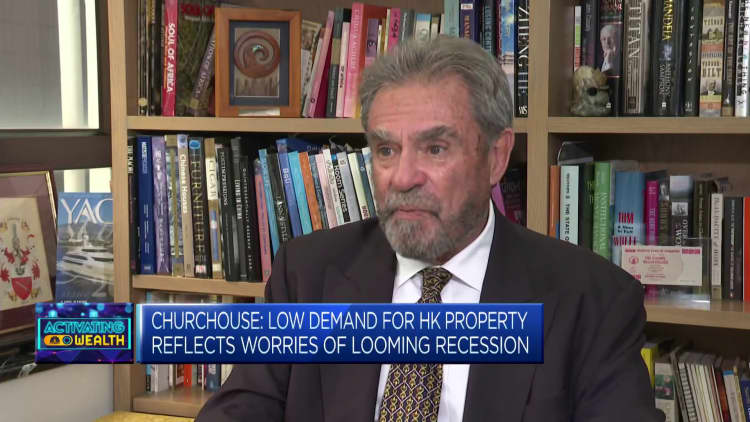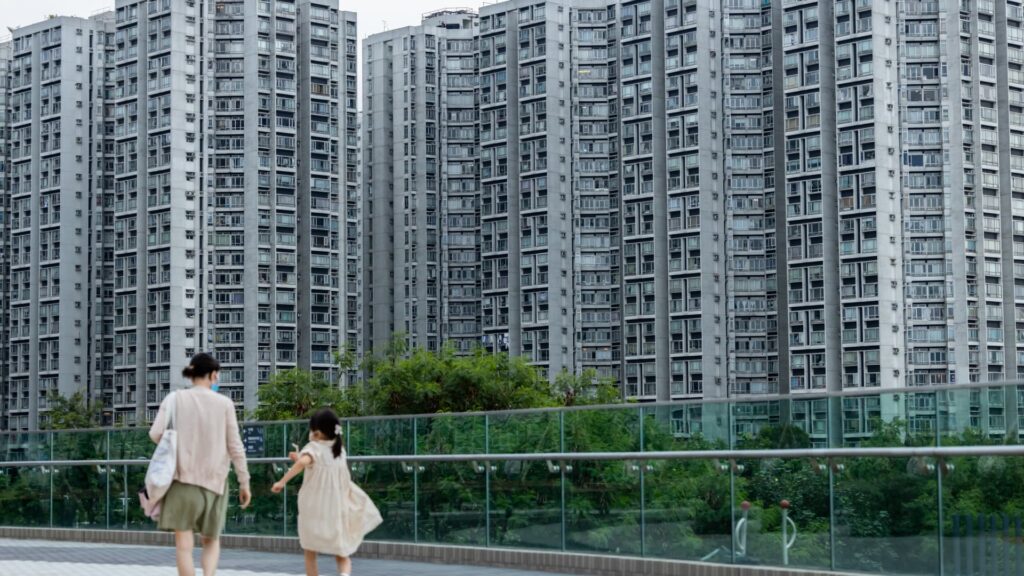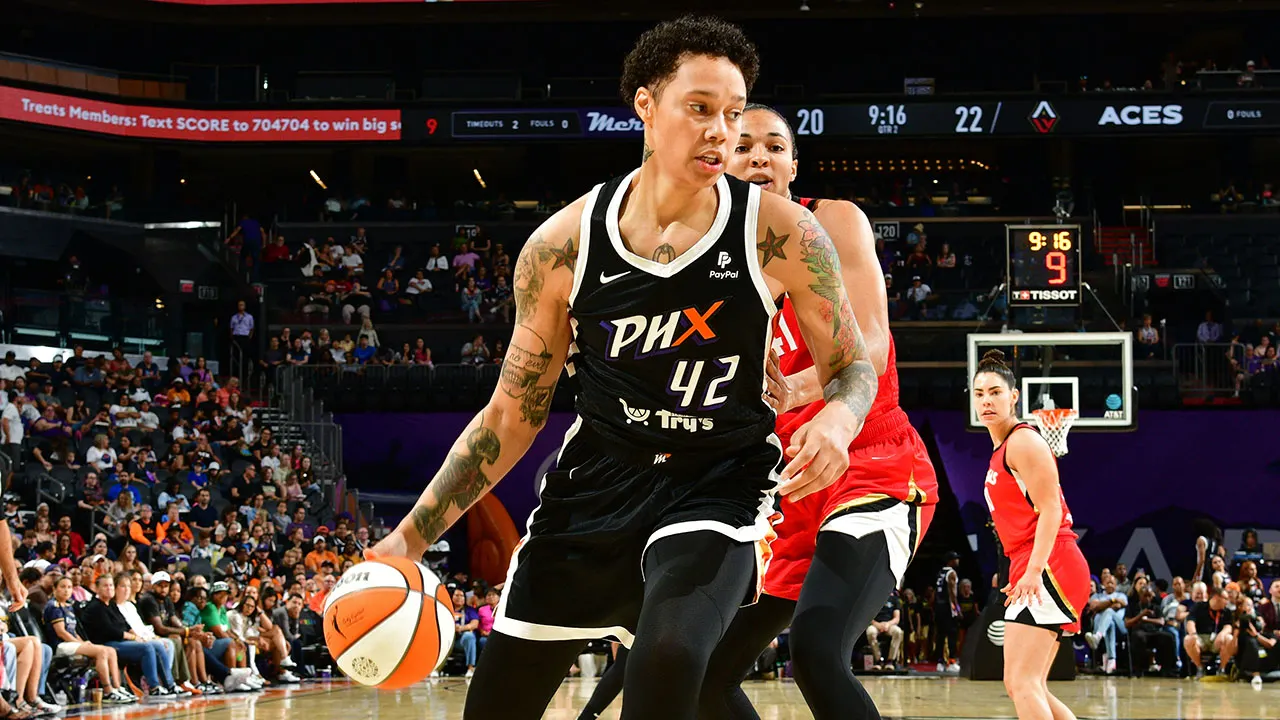Hong Kong residential prices could fall by another 10% in 2024, according to DBS Hong Kong.
Bloomberg | Bloomberg | Getty Images
Hong Kong’s property market has plunged nearly 20% since its peak, and it may be a good time for homeowners to buy — but investors might want to think twice, according to Peter Churchouse, chairman and managing director of real estate investment firm Portwood Capital.
With property prices in the city down 15-20% since their peak, Churchouse said now may be a good time to buy a property in Hong Kong if you’re looking to own a home, but investors hunting for yield should look at Australia and New Zealand instead.
Investors and homeowners have different priorities, Churchouse pointed out.
For homeowners looking to buy, “prices down this much is probably not a bad time to look to be buying” if you can afford to pay mortgage and down payment, he said Tuesday on CNBC’s “Squawk Box Asia.”
“There’s still a bit of downside risks … but perhaps the worst is over.”
Home prices in Hong Kong dropped for four months straight. The official housing price index stood at 339.2 in August, down 7.9% from a year earlier and 4.2% lower from April peaks.
“Hong Kong is probably the easiest place in the region to buy, and I would think that Japan is probably a close second,” he said.
Buying elsewhere in the region is “fraught with all sorts of difficulties and legal issues … There are all sorts of banana skins,” Churchouse warned, explaining that home buyers in other countries either have to be a resident, permanent resident or an employee.
“Often, you can’t own property as an investor,” he added.

Jeff Yau, Hong Kong property analyst at DBS Hong Kong, said prices in Hong Kong are expected to continue plummeting and could fall by another 10% in 2024.
In October, the Hong Kong government cut stamp duties for property buyers to help boost the city’s slumping real estate market.
Among the relaxed levies, the stamp duty that non-permanent residents have to pay for property and another levy imposed on additional properties purchases by residents will each be halved to 7.5%.
Despite the positive news for homebuyers, demand may not bounce back in full force as the higher cost of financing will remain a hurdle for potential homeowners, said Henry Chin, Asia-Pacific’s head of research at CBRE.
Best rental yield
For investors looking for high rental yield, “Hong Kong is not the place,” Churchouse said. “The yield today is less than the cost of capital, less than the interest rate you’re paying on your loan.”
Rental yield in Hong Kong is currently below 3%, while the effective mortgage rate exceeds 4.1%, implying a “negative rental carry,” DBS Bank’s Yau said.
“If the investors have their first property, they still need to pay New Residential Stamp Duty of 7.5% if they buy a second property,” Yau said. “It is not a good time to buy property for investment.”
Where can investors find good rental yield?
“The best yield in markets in this region, I tend to think, are Australia and New Zealand,” Churchouse said. Yield for residential property or commercial property there may be as high as between 6-8% — “maybe even higher,” he added.
In Japan as well, it’s common to find rental yields of about 5% or 6%, he added.
In a country where interest rates are “very, very low,” he said, “You can get a rental yield that higher than your interest costs in Japan.”
— CNBC’s Clement Tan contributed to this report.
[ad_2]
Source link













